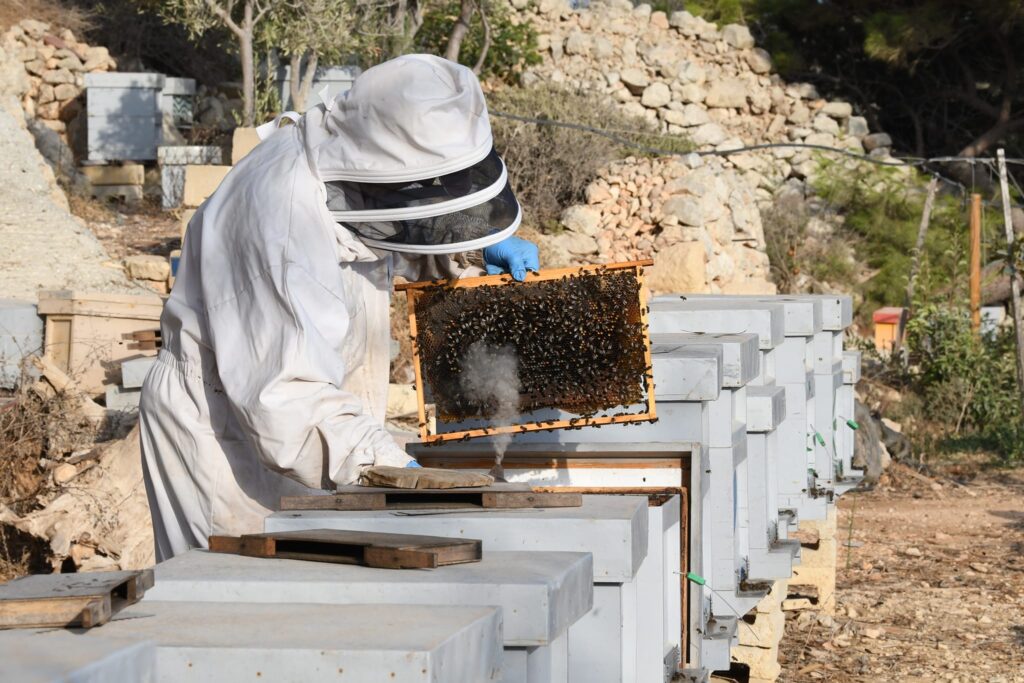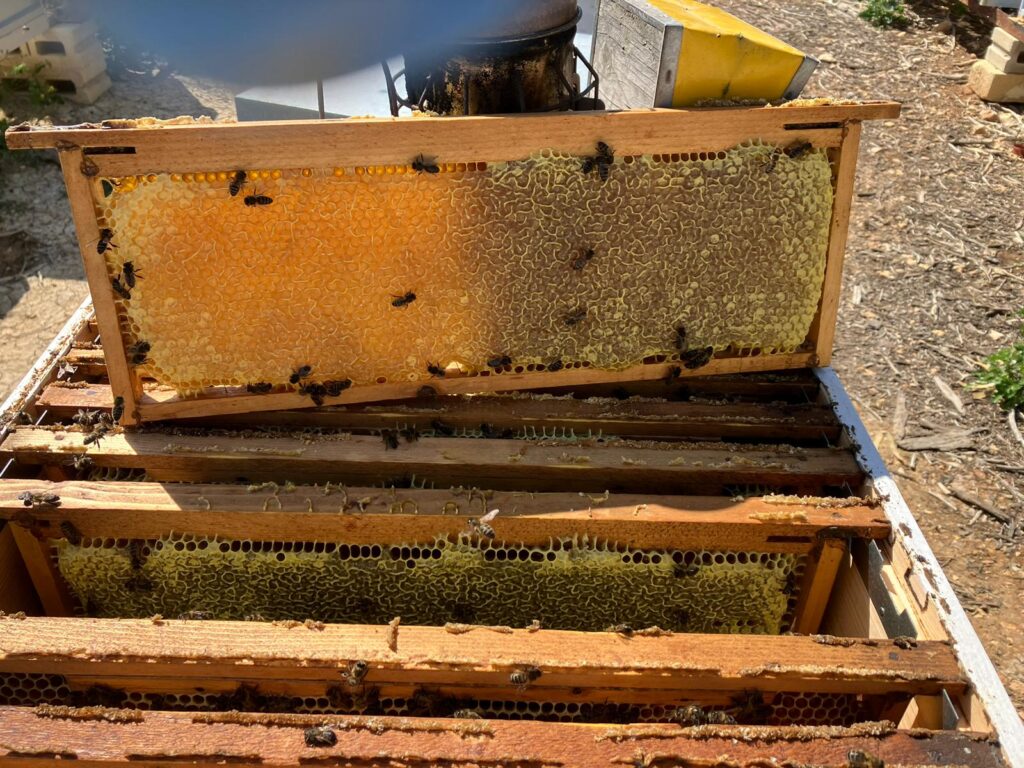Bees have a crucial role in maintaining ecological diversity, as they are major pollinators of the food we consume. Bee pollination is responsible for approximately 80% of our food, making it a vital component of our ecosystem. The Maltese honeybee, also known as Apis Mellifera Ruttneri, plays a crucial role in pollinating crops and wildflowers, contributing significantly to the preservation of the natural environment.
Endemic to the Maltese Islands, the Apis Mellifera Ruttneri bee is well-suited to our climate and it is known for its black colour and resistance to disease. Despite being native to the Maltese, over the years it has experienced a significant decline in its population, making conservation efforts all the more important.
Nowadays, bee colonies are typically raised in boxes, whereas in the past they were raised in hives. As beekeeping techniques have evolved, advancements in science and experience have helped determine the optimal conditions for raising healthy and productive bees. These colonies are often located in designated areas known as graveyards, which can still be found in various regions of Malta, with the Xemxija and Mellieha areas being particularly notable for their abundance of beekeeping activity.
A bee colony housed in a box typically includes a queen, nursing bees, drones, and many worker bees. The queen’s role is essential for the growth of the colony, as she lays a large number of eggs that are necessary for its survival. However, if there is no queen present or she does not have access to sufficient food, the colony will not function properly, resulting in a decrease in the number of eggs laid and ultimately, the shrinking of the colony. As such, providing the queen with the necessary nutrition to produce eggs is essential for the health and growth of the colony.
In addition to their role in pollination, bees also contribute to the conservation of the environment and the mitigation of climate change. They play a vital role in ensuring sustainable agriculture and food security, as well as contributing to the maintenance of biodiversity. As such, it is crucial that we work to protect and conserve bees, as their importance to the natural world cannot be overstated.
Bees are facing numerous threats, such as habitat loss, pesticide use, and climate change. As such, it is important that we take steps to help protect them. One way to do this is by creating bee-friendly habitats, such as by planting a variety of flowers that provide food and shelter for bees. Additionally, avoiding the use of pesticides and other harmful chemicals can help to protect bees and their habitats.
Another way to help protect bees is by supporting local beekeepers. By purchasing honey and other bee products from local beekeepers, we can help to support their efforts to maintain healthy bee colonies. Additionally, you can learn more about beekeeping and the importance of bees by attending events such as the beekeeping event being organized by Esplora to celebrate World Bee Day -read more about it here: https://esplora.org.mt/bee-buzzz/

